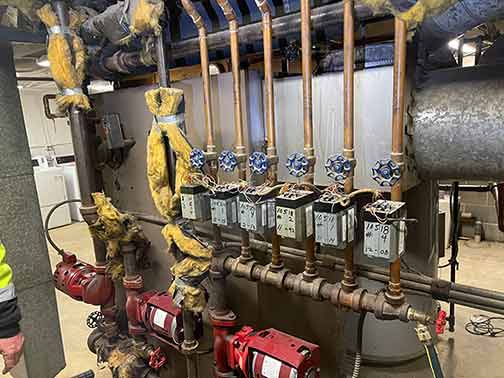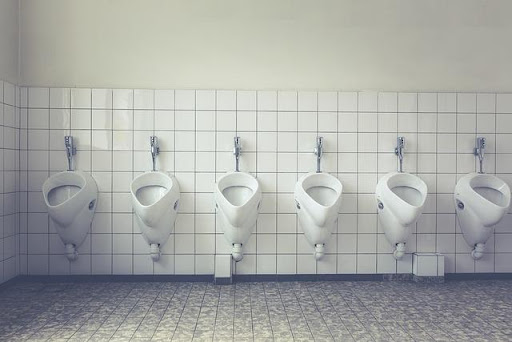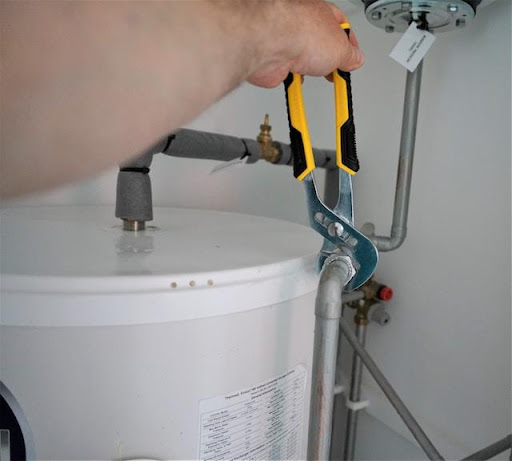
The plumbing systems in residential and commercial buildings do the same things; they supply fresh water to the building and remove wastewater from the premises. Visitors who use the plumbing fixtures in a commercial building may not see any differences between them and the plumbing fixtures in their homes.
Yet there are lots of differences between these two types of plumbing systems. Although they look the same on the surface, their underlying structures are very different. For one thing, commercial plumbing systems serve several people. As a result, they are larger and more complex than the plumbing systems in homes.
But the difference between the two systems is not limited to size; they also influence how these different plumbing systems should be managed. For property managers and real estate investors who own or operate commercial and residential buildings, understanding the differences between residential and commercial plumbing systems is crucial.
Important differences between residential and commercial plumbing
Firstly, residential plumbing refers to the plumbing systems found in homes, along with their related sub-systems, such as drain and sewer lines. These systems have relatively simple construction because they only serve the needs of a limited number of people.
Commercial plumbing, on the other hand, is a plumbing system for a wide range of business facilities. These have to be more robust than residential plumbing systems because of the number of people who use them and the different ways those people use them.
What are the major differences between residential plumbing systems and commercial plumbing systems?

Commercial plumbing systems are used by more people.
Amount and type of usage
Commercial plumbing systems are used by more people. Unlike residential plumbing, which is used mostly at specific times during the day, commercial plumbing is used heavily throughout the day. The types of materials people flush into the drains of commercial plumbing systems also vary a lot.
Durability of the plumbing
As a result of the amount of use they see, the fixtures in commercial systems are more robust; they use higher-grade materials. Residential plumbing is subject to less wear. Lower-grade pipes may be acceptable in residential plumbing because they don’t experience heavy usage.
Differences in complexity
Compared to commercial systems, residential plumbing systems are straightforward; comprising a few sinks, toilets and showers. Commercial plumbing often has multiple sinks, toilets and urinals on each floor of a multi-story building. A good number of these fixtures may be under use at the same time.
Risk of damage
Because of the sheer number of people using them, commercial plumbing has a higher risk of being damaged. This is partly because the people who use commercial plumbing are not likely to treat them with as much care as they show the plumbing system in their homes.
System efficiency
If there are problems in a home’s plumbing, the impact is limited to the people living in the home. Problems in a commercial plumbing system not only affect more people but can also hurt the operation of the businesses in that building. That is why these systems have to be very efficient.
Water heaters
The water heaters used in residential plumbing will not work in a commercial building because more people require hot water at the same time. To meet this huge demand, commercial buildings use water heaters with large tanks that can take up to 250 gallons of water.
Sanitation and health
Due to the number of people who use plumbing fixtures in commercial buildings, there are bigger health challenges with these systems. To keep them from becoming a health hazard to those who use them, there are stricter health and sanitary standards for commercial plumbing systems.
Frequency of leaks
Keeping tabs on all potential leak locations in a commercial plumbing system is hard. Due to the scale and complexity of the system, it is easier for leaks and other kinds of problems to be missed or overlooked. Managing commercial plumbing systems is more difficult.

Due to the number of people who use plumbing fixtures in commercial buildings, there are bigger health challenges with these systems.
Drainage services
The issue of solving drainage problems in a business is hard. Issues with the drainage system on one of the floors can easily affect the drains on other floors. Sometimes, the drain issues can show up on a floor that is many levels away from the floor where the problem originated.
Plumbing maintenance in residential and commercial buildings
Given this information, how should you maintain the plumbing system in a commercial building? When hiring a plumber for your commercial building, keep in mind the vastly-different training commercial plumbers receive in comparison to how residential plumbers are trained.
The differences in their training can be seen in:
- The scope of work they are trained to handle.
- The stricter job requirements for commercial plumbers.
- The time-sensitive nature of commercial plumbing issues.
Taking these differences into consideration is essential when hiring a commercial plumber. Never hire a commercial plumber until you are sure they have adequate training and experience to handle the plumbing repairs in your business.